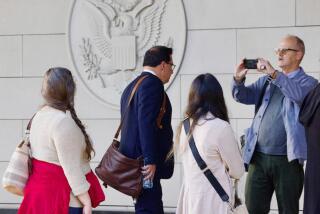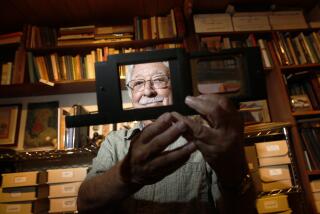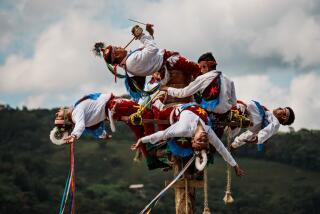David Vazquez, Aztec-language teacher who worked to save ancestors’ history, dies
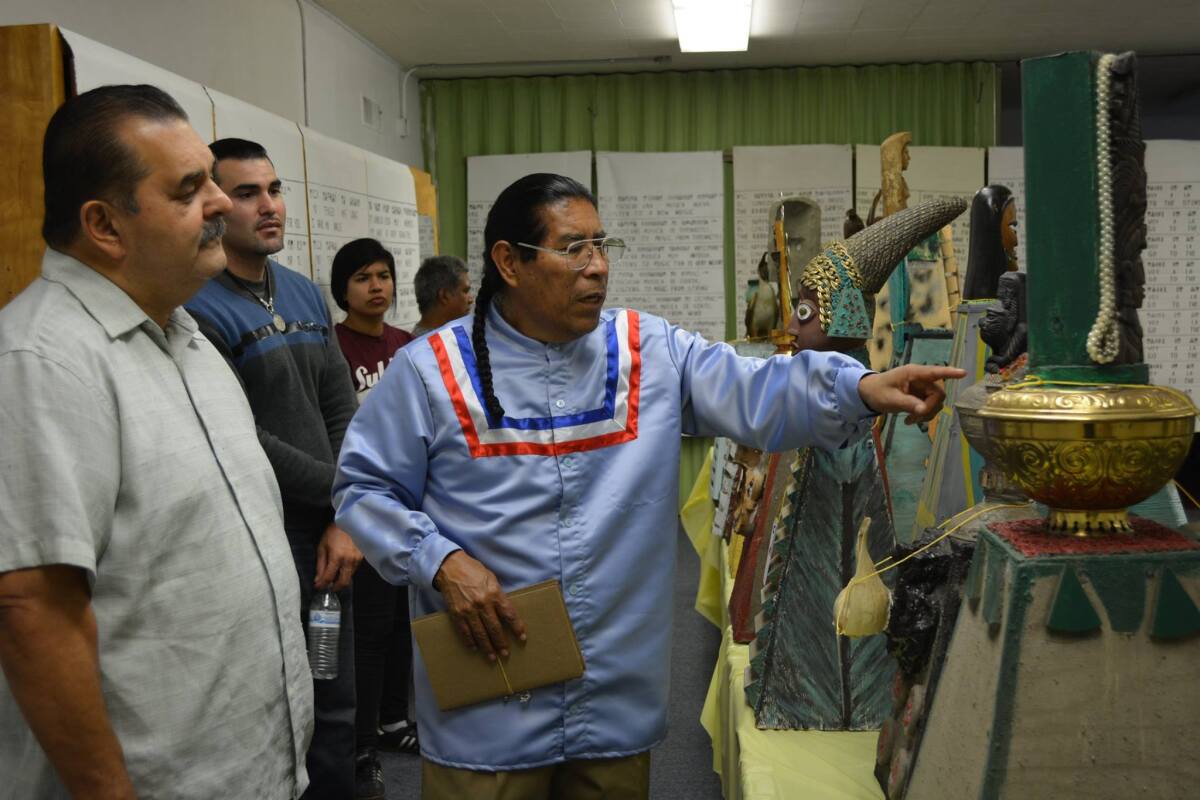
Francisco Barragan had been grieving his mother’s death and subsequent sense of loneliness for nearly a year when his Aztec-language teacher offered a different perspective.
From the basement of an Episcopalian church in Santa Ana, David Vazquez had served as a fountain of knowledge for students nationwide interested in reconnecting with their ancestral, indigenous roots. He wielded his native Nahuatl — a language spoken by the Aztecs — as an entry point into the history and culture of Mexico.
After 20 years of his spiritual guidance, Vazquez created a framework that would help preserve his ancestors’ history beyond his lifetime. He encouraged students to reclaim an element of their culture they lost.
To comfort Barragan, Vazquez told him and his fellow students in 2018 how Aztecs buried a newborn’s placenta near the family’s house or under a nearby tree so the child would always be connected to Mother Earth and bring good luck.
And in that moment, Barragan finally found peace. He realized he was still connected with his mother’s spirit.
“I wiped my tears as he was speaking and looking at me,” Barragan said. “It was almost like a spiritual journey and we had a beautiful guide for that.”
After years of teaching, Vazquez died Jan. 30, his son Moises said. He was 65. The family did not disclose the cause of death.
“David really had this charisma, a spiritual gift, in communicating the roots of his indigenous culture,” said Brad Karelius, a pastor at the Santa Ana church who first welcomed Vazquez in 1989. “His classes became a kind of awakening for Mexican Americans. His students understood that it was more than letters and vowels but a gateway into another world where the sacred permeated everything.”
Vazquez’s affinity for his culture began in his hometown of Tlalmotolo in the Mexican state of Puebla, where he grew up speaking Nahuatl. With limited opportunity in the area, he migrated north to find a new home for his family.
In Santa Ana, one of the most Latino big cities in the United States, he worked as a day laborer until he found himself playing music during Spanish-language Mass at the Episcopal Church of the Messiah. Karelius eventually hired Vazquez as the parish’s sexton.
From dusk to dawn, he cleaned church pews, filled in as a guitar player during Mass, unclogged toilets and helped spearhead Mexican religious celebrations. For Good Friday, he led the Stations of the Cross procession throughout town, carrying the wooden cross he built with his hands. He recited poetry in Nahuatl during the Virgin of Guadalupe’s birthday. His wife, Rosa, who was always by his side, helped cook about 1,000 tamales for posadas.
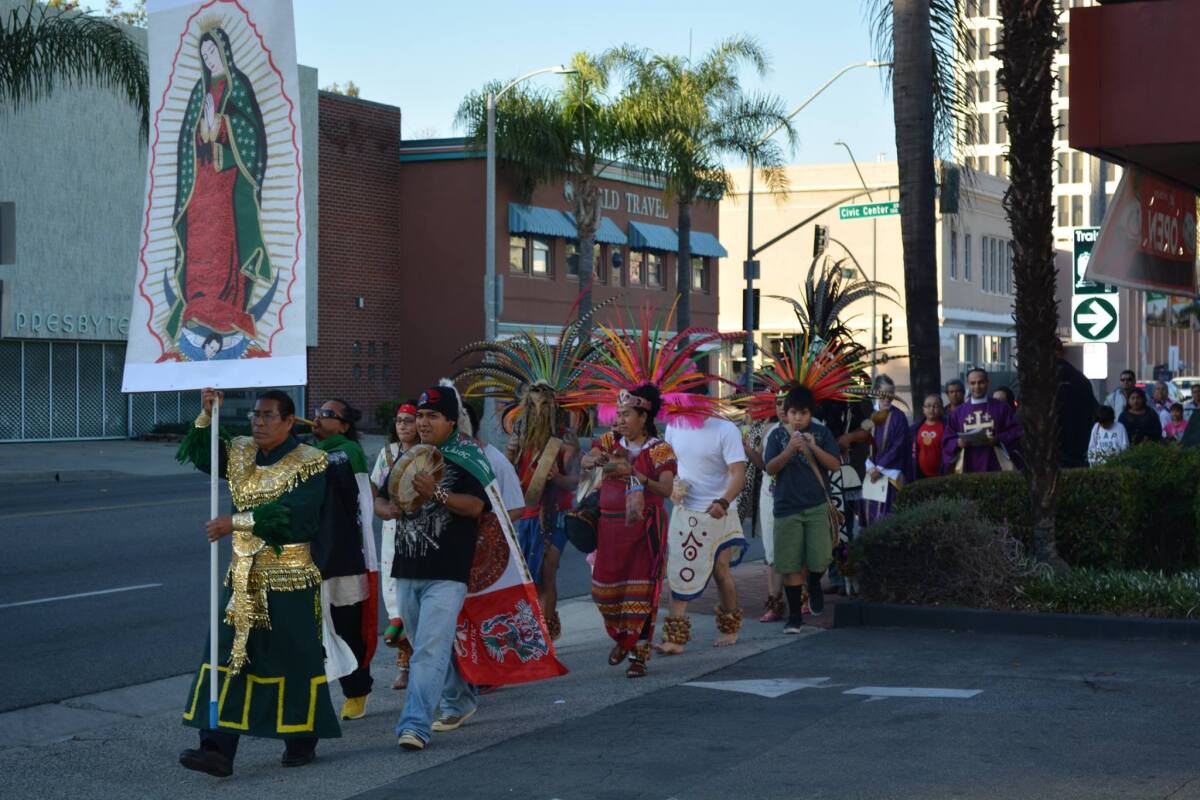
He quickly became a church leader, but Vazquez truly thrived when he fulfilled his dream of opening a school to pass down his native language.
Vazquez initially taught people at his home until he transformed the church’s basement choir room into a makeshift classroom. He decorated walls with posters he created, showing phrases in Nahuatl hieroglyphics, Spanish and English. Through word of mouth and help from a local magazine, people learned about the man teaching this ancient language.
“He just had a lot of tough stuff to deal with that would wear anybody down, but when he started his classes, I could really see his life had more meaning then,” Karelius said.
Soon after, community centers, universities and schools invited the teacher into their classrooms for guest lectures. He was offered employment as a special-language translator for a court case where the defendant spoke only Nahuatl, Moises said. He became a certified court translator and frequently traveled nationwide for his work. The extra stipend help him and his family get by.
Even as Vazquez took on more work and endured a tiring travel schedule, he remained committed to his students in Santa Ana.
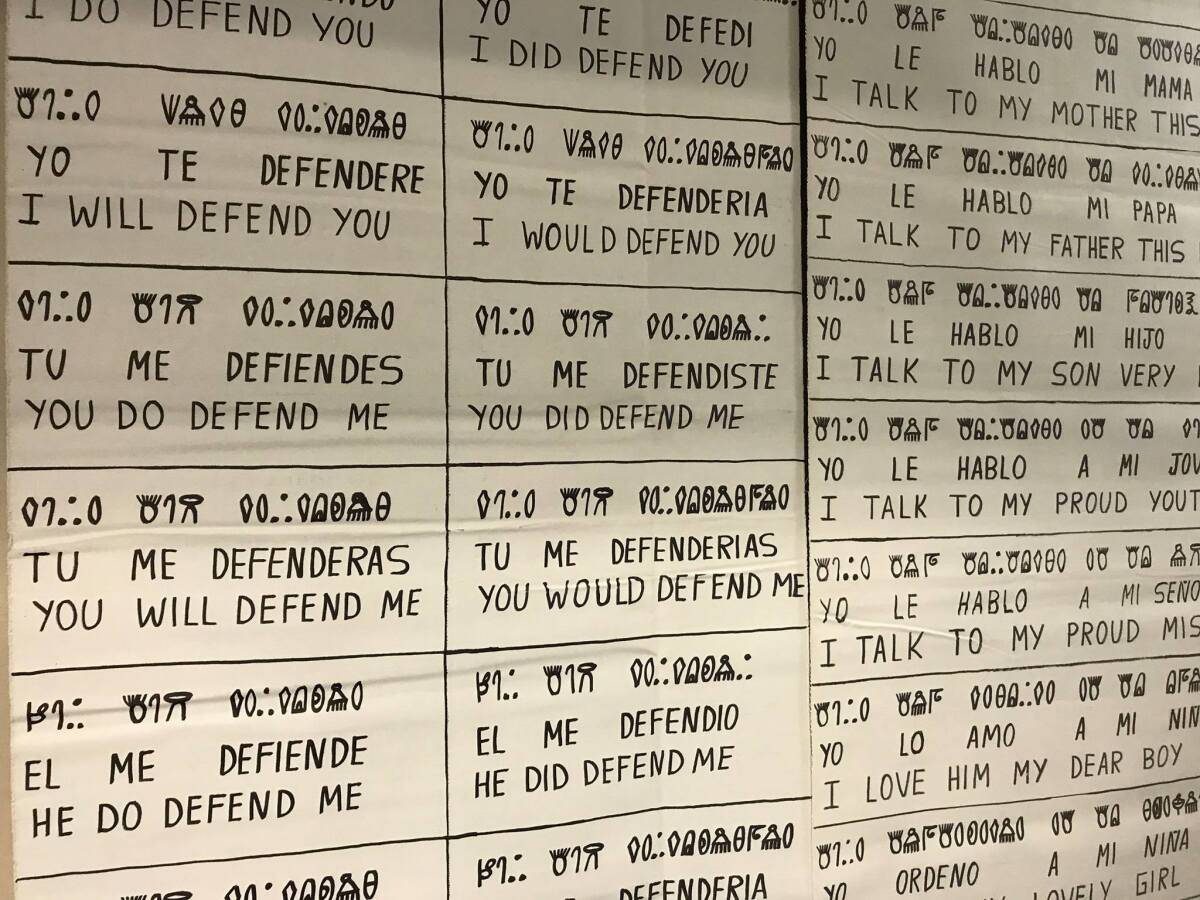
For two hours every Saturday, he passed down what he had learned from his elders in his hometown to the next generation in hopes of preserving his culture.
“His classes would always be free, but you could give donations and get his [self-published workbook],” Moises said. “Money was never a goal when it came to sharing his culture. That’s why he had his day job.”
When new students attended class, Vazquez would return to the basics so they could stay on the same page. At the end, his wife would arrive with tacos de papa and frijoles and salsa.
“It was a little family being with that class,” said Xochitl Castillo, who attended lessons beginning in 2017. She loved learning about her heritage so much that she and a few others created an after-school study group at the park right after class. She occasionally took her father to class, too.
Hector Bonilla started classes with Vazquez in 1997. He caught on quickly, and his temachtiani (teacher) noticed. During class, Vazquez told Bonilla in front of everyone that he should become a teacher like him and help those who were more advanced. Together they could cover more ground.
But before he had a chance, Vazquez postponed class because of health issues. Then the pandemic disrupted in-person gatherings. Bonilla never had a chance to fulfill his teacher’s request, but he hopes to take over classes in the future.
“The least I can do is share it with whoever wants to learn,” he said. “That was his dream. If I give those years back, about the same time he gave me, I think I’ll be going on the right path.”
Vazquez is survived by his wife, three children and four grandchildren.
More to Read
Start your day right
Sign up for Essential California for the L.A. Times biggest news, features and recommendations in your inbox six days a week.
You may occasionally receive promotional content from the Los Angeles Times.

